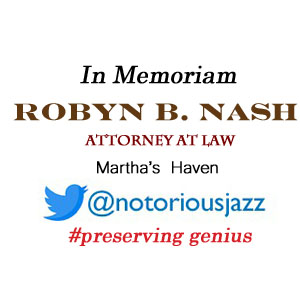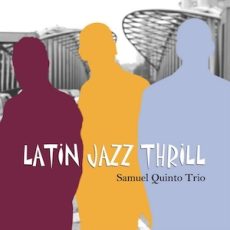
Daily Dose Of Jazz…
Samuel Quinto Feitosa was born Samuel Quinto Feitosa on September 5, 1973 in Belém, Pará, but grew up in Salvador, Bahia. From the age of seven, he developed his interest in piano from the gospel music performed in the Baptist Church during his childhood. An autodidact, he played at home without teachers, learning harmony, reading and writing music and orchestration, musical composition, arranging for the church choir, and started playing as a pianist at age 12.
Releasing his debut CD Latin Jazz Thrill in 2007 in Portugal, with his trio, Samuel followed it with Salsa ‘n Jazz, containing eight original compositions and a standard the following year. After a European tour he established the first course of Latin Jazz at Jazz School North, Porto. He also became the artistic director of one of the most traditional jazz Portuguese clubs, B-flat.
He returned to Brazil in 2012 to take the position of Music Minister at the Second Baptist Church in Mossoro, Rio Grande do Norte. During this period he wrote symphonies, opera, minuets and christmas rratorio for choir.
In 2015 he becames the newest piano representative of Fritz Dobbert pianos and returned to jazz performance. He published his first book called Improvisar é muito fácil in 2016. Quinto is a member of several organizations including the International Council for Traditional Music, the American Council of Piano Performers, the National Federation of Music Clubs and has a collaborative relationship with UNESCO.
Pianist Samuel Quinto, who is a Fellow of the Royal Society of Arts in London, continues to perform, compose and educate.
More Posts: bandleader,composer,history,instrumental,jazz,music,piano
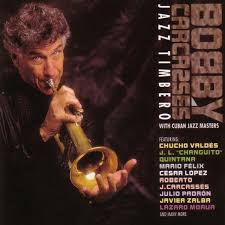
Daily Dose Of Jazz…
Bobby Carcassés was born on August 29, 1938 in Kingston Jamaica where his Cuban grandfather worked as a diplomat. Upon moving to Villa Clara, Cuba at the age of four he grew up surrounded by Cuban rhythms, listening to Benny Moré, Conjunto Casino & Roberto Faz. He acquired a love for an eclectic spectrum of music from the opera star Enrico Carusso and Mexico’s Jorge Negrete to jazz royalty Sarah Vaughan, Buddy Rich and Stan Getz.
By the 1950’s he was involved with some of the best vocal quartets in Cuba and while playing for many years at The Tropicana the center of Cuban Jazz, he began to experiment with bebop and scat vocals. During the Sixties he traveled to Europe, spending a year in Paris where he played with Kenny Clarke and Bud Powell.
Returning to Cuba he worked in the Teatro Musical where he met three of the future founders of Irakere: Chucho Valdes, Carlos Emilio Morales and Paquito D’ Rivera. Over the next ten years he played in the best night clubs in Havana, Cuba as well as acting in Cuban cinema, Tv and essentially starting to form his own Jazz group.
In 1980 he organized the first Jazz Plaza Festival in Havana, inviting Dizzy Gillespie, Ronnie Scott, Charlie Haden, Airto Moreira, Tania Maria, Steve Coleman and many others. After his own group played these festivals. he traveled to Canada, England, France and the USA where he performed with Tito Puente, Eddie Palmieri, Patato Valdés and many others on the Latin Jazz scene.
Trumpeter Bobby Carcassés, who also plays piano, bass, percussion, and flugelhorn, as well as writing his own pieces, continues to perform, record and create art that has been exhibited globally.
More Posts: bandleader,bass,composer,flugelhorn,history,instrumental,jazz,music,percussion,piano,trumpet
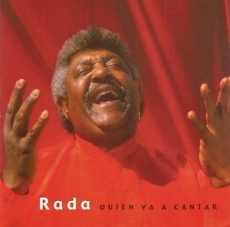
Daily Dose Of Jazz…
Omar Ruben Rada Silva was born July 16, 1943 in Montevideo, Uruguay. Little is known about his early life but his sound comes from his exposure to the music of his country, a chorus of tamboriles and Uruguayan barrel drums.
In 1965, he and Eduardo Mateo formed the band El Kinto Conjunto. This was the first group in Uruguay to create the beat genre in Spanish and to fuse rock with Latin American musical styles. In 1969 the success of his Candombe song Las Manzanas (The Apples) led to his first solo album and participation in the Festival of Popular Music in Rio de Janeiro, Brazil. A year later he formed the band Tótem.
In 1977, he traveled to the United States after an invitation by the Fattoruso Brothers to play with the group OPA. Over the next year, he performed with Tom Scott, Ray Barretto, Hermeto Pascoal, and Flora Purim.
Settling in Mexico for three years beginning in 1991, Rubén worked as a composer and arranger for local musicians such as Mijares, Eugenia León, Stephanie Salas, and Tania Libertad. In 1994 he shared the spotlight with Sting and UB40 at the Palacio de Deportes in Mexico City.
Rada’s renown led him to record on international labels and his songs have been played worldwide and have been recorded by Milton Nascimento, Herb Alpert, and Lani Hall. He was invited by Jon Anderson and Joan Manuel Serrat to appear on their albums Deseo and Utopía, respectively.
He has voiced the part of Lucius Best/Frozone in the 2004 Argentinian dubbing of The Incredibles. Ruben has directed radio and TV shows, and has starred in the television sitcom La Oveja Negra (The Black Sheep).In 2010, the third round of the series LifeLines in Berlin paid tribute to Rubén Rada. That same year he recorded a show in the Argentine program Encuentro en El Estudio, which is run by that country’s Ministry of Education.
Percussionist, composer, singer and television personality Ruben Rada, who has recorded more than thirty albums, continues to perform, compose and record.
More Posts: bandleader,composer,history,instrumental,jazz,music,percussion,vocal
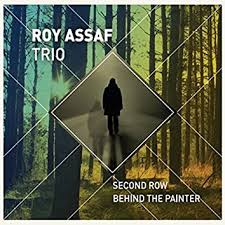
Daily Dose Of Jazz…
Roy Assaf was born on April 10, 1982 in Beersheba, Israel and studied at Tel Aviv Conservatory. Coming to America he continued his studies at Berklee College of Music in Boston, Massachusetts and then migrated to New York City and while earning his Master of Art at the Manhattan School of Music, he established his reputation as one of the most sought-after young pianists in the New York jazz scene.
After a meeting with legendary bassist and producer John Lee soon found Roy touring around the world and playing the most prestigious festivals, clubs, and concert halls with the Dizzy Gillespie All Stars, a band that included James Moody, Jimmy Heath, Paquito D’Rivera, Roy Hargrove, Lewis Nash, Randy Brecker, Antonio Hart, and other jazz masters.
Before long, Assaf was getting calls from some of the world’s most influential contemporary jazz bands that included the Slide Hampton Sextet, The Mingus Big Band, Steve Turre’s bands, Roberta Gambarini Quartet, David Sanborn Group, Claudio Roditi Quartet, and many others.
In 2012, he released his debut album, Respect, on Jazz Legacy Productions accompanied by bassist Reuben Rogers and drummer Greg Hutchinson. The following year he formed a trio with Raviv Markovitz on bass and Jake Goldbas on drums and together they began to establish the unique voice of the Roy Assaf Trio.
Pianist and composer Roy Asssaf, who has released two albums and has won several awards including one from ASCAP, a Eubie Blake and two from DownBeat and others, continues to perform across the globe.
More Posts: bandleader,composer,history,instrumental,jazz,music,piano
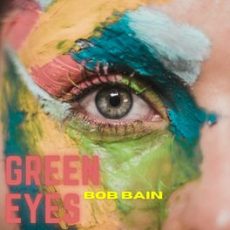
Daily Dose Of Jazz…
Bob Bain was born January 26, 1924 in Chicago, Illinois and began his professional career in the 1940s playing guitar in popular big band outfits led by Tommy Dorsey and Bob Crosby. He is credited with guitar on one of Dorsey’s biggest hits, Opus No. 1.
An unusually early adopter of the electric guitar, Bob started playing an early Gibson Les Paul model before switching to a modified 1953 Fender Telecaster. Like most jazz guitarists, he also favoured semi-acoustic models such as the Gibson L-5 and ES-150.
A long time collaborator with composer Henry Mancini, he is also credited with the guitar introduction to the theme from the popular 1950s television private detective series Peter Gunn. Bain contributed his guitar talents on another of Mancini’s significant soundtrack albums, the musical score to the movie Breakfast at Tiffany’s, as well as playing on the soundtrack to the television Western series Bonanza.
Guitarist Bob Bain, who was mainly known for his film music contributions, including Dr. Zhivago, where he played the balalaika in the score for certain scenes where Lara’s Theme is heard, died on June 21, 2018 in Oxnard, California. He was 94.
More Posts: guitar,history,instrumental,jazz,music





